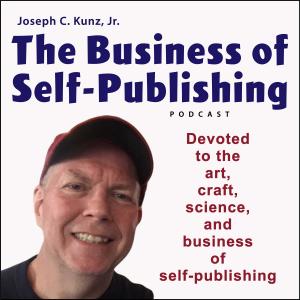The Business of Self-Publishing

4 Myths about Sell Sheets That Can Ruin Your Book Sales
Synopsis
Understanding the myths and misperceptions that many self-publishers have about the role of their book’s sell sheet can dramatically improve a book’s overall success. Having a well-prepared and professional-looking sell sheet for your book will go a long way to prove to the distributors, wholesalers, and bookstore retailers that you are serious about the success of your book.
What You Will Learn
1. You will learn about the four biggest myths about sell sheets that can harm your book sales.
2. You will learn how these myths can keep your book hidden in obscurity, not helping anyone.
3. You will learn just how important a role the sell sheet can play in the success of your book.
Introduction
Do you have a sell sheet for your self-published book? Do you not have one because you believe that it won’t help you sell more books? Understanding the myths and misperceptions that many self-publishers have about the role of their book’s sell sheet can dramatically improve a book’s overall success.
Having a well-prepared and professional-looking sell sheet for your book will go a long way to prove to the distributors, wholesalers, and bookstore retailers that you are serious about the success of your book. If they believe that you have the ability and stamina to market your book like a professional, and for an extended period of time, they will be much more willing to take a chance on you and your book.
In this list, I dispel the most common myths that I hear from other self-publishers:
Sell Sheet Myth #1.
I Don’t Need A Sell Sheet Because I Use A Distributor To Sell My Book
Having your book with a distributor is great. The distributor will handle many of the challenges of getting your book onto the shelves of bookstores and into libraries. They will contact the stores, negotiate to purchase when possible and lower a lot of the barriers that you would face on your own. Working with distributors can truly be an advantage.
Even if a distributor is doing much of the heavy lifting for you, the distributor still expects you to be very involved in the marketing of your book. Your sell sheet, which you create, offers your book’s information the way that you want it presented – in the best light possible. Having produced a very professional and well-thought-out looking sell sheet, will help you get a distributor in the first place, and help them sell more of your books
Sell Sheet Myth #2.
I Don’t Need A Sell Sheet Because I Don’t Sell My Book Directly To Consumers
Ok. You may not sell your book directly to consumers. Your book may only be available on Amazon. Or maybe your book is on Lightning Source, and they manage your sales and distribution to Amazon and to all other retailers. But if you have any hopes of selling more than a handful of books each month, you will need to start taking the marketing of your book more seriously.
A sell sheet is not only read by retailers, wholesalers, and libraries. Consumers will also look at your book’s sell sheet to help them learn more about your book. Retailers and wholesalers need to see your sell sheet to help them decide if they want to carry your book or not. If they do accept your book, their sales team will use your sell sheet to help them sell your book.
They will also need it when they are assembling their catalog. Library purchasing departments will need your book’s sell sheet to also help them decide if your book is appropriate for their patrons. For consumers, and your clients, you must put a PDF of your sell sheet on your website and in your media kit.
Sell Sheet Myth #3.
I Don’t Need A Sell Sheet Because I Constantly Promote My Book On Social Media
Social networking and media websites are very useful, and they should play an important role in your marketing plan. But you should only choose two or three to focus your efforts on. But there is a big problem with relying too heavily on social media. You don’t own that space. However,






 Visit Podcast Website
Visit Podcast Website RSS Podcast Feed
RSS Podcast Feed Subscribe
Subscribe
 Add to MyCast
Add to MyCast